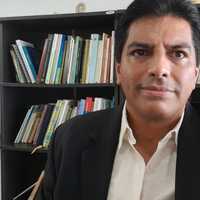Conferencia Magistral: “el Balanced Scorecard (Bsc) Como Sistema de Gestión y la Ética Como Instrumento de Caracter Orientador en las Acciones y Practicas Tributarias Del Sector Público”
Fecha de creación: 21/02/2024Tipología: Productos Resultados de Actividades de Divulgación Pública de la Ciencia.
- Detalles de la producción
- Autores/inventores y/o titulares
- Objetivos de Desarrollo Sostenible
- Identificadores asignados (DOI/ISBN/ISSN)
- Referencias en colaboración
- Referenciado en redes científicas
Nombre de la producción
Conferencia Magistral: “el Balanced Scorecard (Bsc) Como Sistema de Gestión y la Ética Como Instrumento de Caracter Orientador en las Acciones y Practicas Tributarias Del Sector Público”
Tipología de la producción
Productos Resultados de Actividades de Divulgación Pública de la Ciencia.
Fecha de publicación del producto
13/12/2023
Descripción de la producción
Se participa en el evento científico internacional “VII Encuentro Internacional de Investigadores y Estudiantes de REOALCEI -2023”
Clasificación Internacional Normalizada de la Educación (CINE)
Gestión y administración































